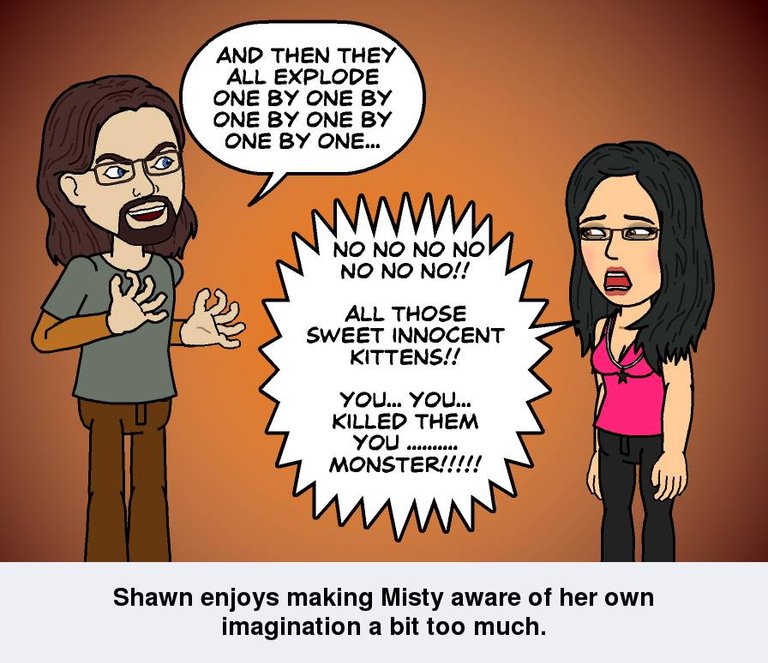Mirror neurons aren't exactly what they're generally thought to be.
The wetware for every sense creates sensation. I know that may sound odd, but think of it this way: a television set creates a picture from pulses of electricity streaming into it's circuitry from a wire. The picture doesn't exist in the wire. It only exists once the circuitry of the television has taken the pulses and created a picture.
This is how our senses work. Let's call this primary function "presentation."
If a television's circuitry also included some memory for the pictures that it's created in the past, and had additional circuitry to recreate ( re-present) pictures from memory instead of a direct, live signal, then a television would also have the capability to do what mirror neurons do within the wetware of our senses.
That's all mirror neurons are: they're a smaller set of wetware that recruits parts of the original "presentation" wetware to "re-present" sensation impressions from memory.
Most people call this "imagination." :) There's no functional difference between imagining an apple (there is a visual representation created that you experience) and the experience "feeling" someone else's pain "empathetically." (I'm fairly sure "empathetically" isn't a word, but moving on....)
The thing is, it's not a direct kind of perception as most people think it is, but rather an indirect representation. Empathy can be wrong. It's possible to feel someone's pain when in fact they're not suffering at all.
The proof for this (other than actually making that specific mistake) is that it's possible to "feel" the pain of people merely by reading about them. In fact, as most people read stories, they create vicarious representations of the experiences of the character's they read about. For example, people don't merely read "And Joe stood by the sea, which had the vague smell of salt."
(Knowing this can be a lot of fun. See below.)

Another proof is that to remember anything, you must create a representation of the memory. In other words, when you remember a time when you were happy, you actually feel happy as a part of recalling the memory. If this is empathy, are you empathizing with yourself?
Cheers! :)
Thanks for the contribution. I'd say "yes" to your last question. This sounds somewhat related to those AI programmers who feel they somehow have to add "emotions" to their AI to make them behave more like humans. All they are really adding are simulations of emotions, in the hope they are appropriate. I see emotions more as quantifiers to experiences; by adding or subtracting emotions, such experiences, and truths, become either more (or less) true, more (or less) part of the constructed mental reality. I think what many think of when discussing emotions is "emotional behaviour", but that's just a visible extreme, there are many small emotions that flicker every time we think of something.
The idea of emotions and A.I. is interesting. Emotions in humans are an evolved adaptive traits that serve very distinct functions. In A.I. they are implanted simulations, mostly to make them appear more human and thus more relateable to humans. It's interesting to think about
@hartnell So it sounds like you are saying that our experience of empathy is a product of our memory and imagination, in that we remember our own past feelings and then superimpose them on the current situation. Am I understanding that correctly?
Close. The addition of "superimposing it on the situation" takes what I'm talking about to the degree of psychological projection.